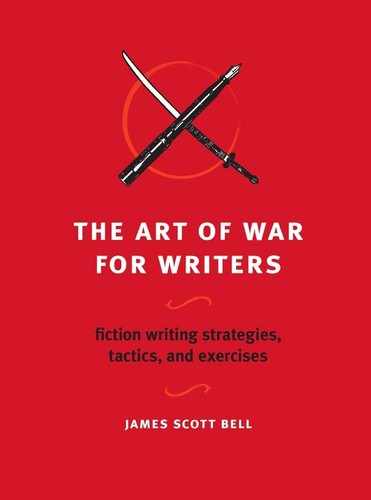
152
46
Dialogue will compel the
turning of pages if it is a
compression and extension
of action.
Bloated, clunky, dull dialogue is a fi ve-alarm warning to
the reviewer that you can’t write salable fi ction.
Crisp, crackling dialogue, differentiated among the
characters (so they don’t all sound the same) instills a
feeling of confi dence in the reviewer.
Everyone loves great dialogue.
So, how do you crank yours up?
By remembering the most important rule of all, a def-
inition that comes from the noted playwright and screen-
writer John Howard Lawson (also one of the blacklisted
Hollywood Ten in the 1950s). Dialogue, he said, must be
viewed as “a compression and extension of action.”
1
That means you never have a character say anything
that is unconnected to that character’s objective in a scene.
And every character in every scene must have an ob-
jective, otherwise he shouldn’t be there. Replace him with
a chair.
1 Lawson, John Howard, Theory and Technique of Playwriting, (NY, Putnam, 1936,
P. 288.)
Z4273i_127-159.indd 152Z4273i_127-159.indd 152 9/24/09 11:21:09 AM9/24/09 11:21:09 AM

153
With this in mind, try the following:
1. Before you write a scene, review in your mind
what each character wants at that moment in time.
2. Make sure the objectives come into confl ict. It
doesn’t have to be direct confl ict, though much
of the time that is to be preferred. It can be as
simple as one character being distracted so the
other one can’t get through. Or one character
trying to avoid direct answers and hesitating
all over the place. Anything but pure back-and-
forth agreement.
3. Review your dialogue after it’s written, asking,
How do these lines help my character realize her objec-
tive? How is she using the dialogue as an extension or
compression of action?
Z4273i_127-159.indd 153Z4273i_127-159.indd 153 9/24/09 11:21:09 AM9/24/09 11:21:09 AM
..................Content has been hidden....................
You can't read the all page of ebook, please click here login for view all page.
